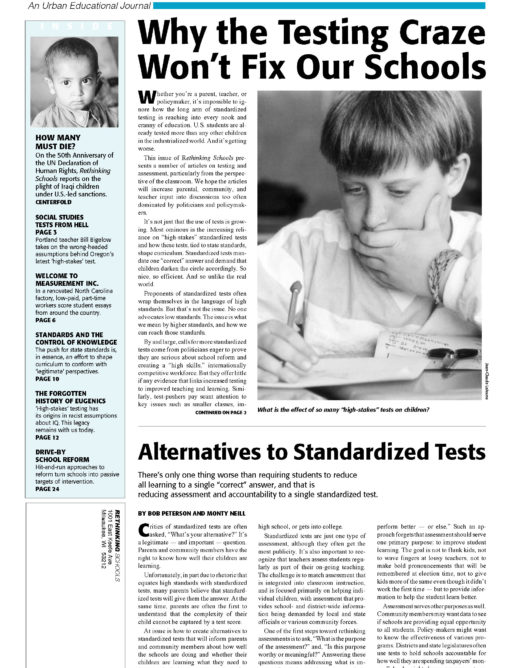Appropriate Use of Tests
The following is from a recent report by The National Research Council of the National Academy of Sciences. The section below, taken from the Executive Summary, deals with basic principles of appropriately using tests. The report, “High Stakes: Testing for Tracking, Promotion, and Graduation,” is available at www.nap.edu.
- The important thing about a test is not its validity in general, but its validity when used for a specific purpose. Thus, tests that are valid for influencing classroom practice, “leading” the curriculum, or holding schools accountable aren’t appropriate for making high-stakes decisions about individual student mastery unless the curriculum, the teaching, and the test[s] are aligned.
- Tests are not perfect. Test questions are a sample of possible questions that could be asked in a given area. Moreover, a test score is not an exact measure of a student’s knowledge or skills. A student’s score can be expected to vary across different versions of a test — within a margin of error determined by the reliability of the test — as a function of the particular sample of questions asked and/or transitory factors, such as the student’s health on the day of the test. Thus, no single test score can be considered a definitive measure of a student’s knowledge.
- An educational decision that will have a major impact on a test taker should not be made solely or automatically on the basis of a single test score. Other relevant information about the student’s knowledge and skills should also be taken into account.
- Neither a test score nor any other kind of information can justify a bad decision. Research shows that students are typically hurt by simple retention and repetition of a grade in school without remedial and other instructional support services. In the absence of effective services for low-performing students, better tests will not lead to better educational outcomes.

